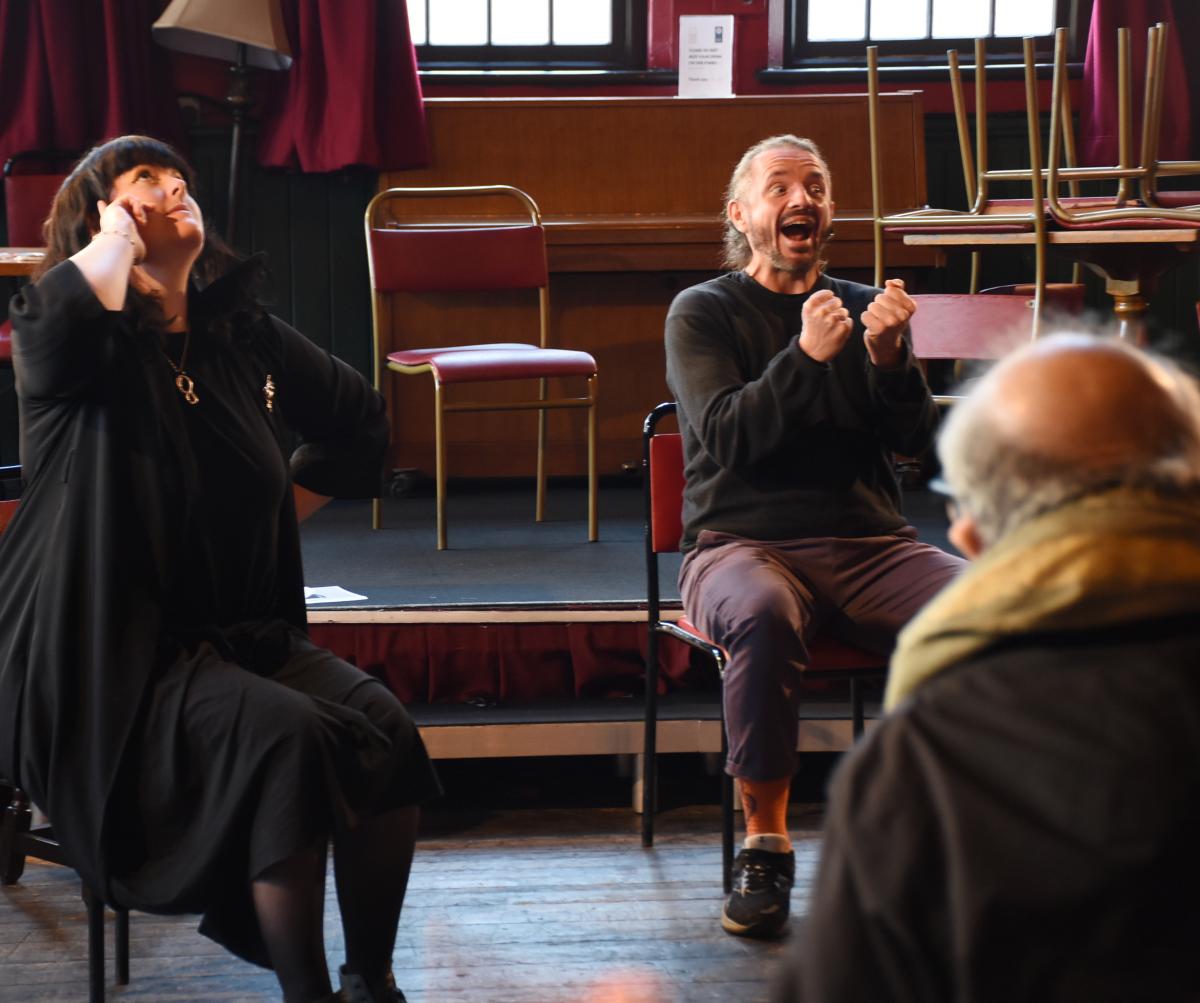
Tell us a little bit about you. Your work, when you started working with culture, health and wellbeing, and how?
Paul: I’ve been involved in work to improve health and wellbeing for over 25 years. I started out working in neighbourhood regeneration where I worked with multi-agency teams to devise cultural, health and wellbeing initiatives. More recently I have had the good fortune to have spent the past 6 years working at a community garden which gave me the opportunity to devise and take part in a wonderful array of activities including healthy eating sessions, crafts, festivals, and of course…gardening. At the moment I am enjoying immersing myself in theatre as a vocation, working with people to bring out our lived experiences to act and make stories and re-imagine the world in ways that reflect our needs better and where we can be well.
Charlotte: I’ve always been passionate about the connection of the expressive arts with Health and Wellbeing. I suppose my conscious interest actually started when I was studying so-called “Art Brut” and “Outsider Art” on my degree, which are of course demeaning labels but the use of these terms is an important part of history, which I’m glad we’ve moved on from.
I was originally then planning to train as an Art Psychotherapist and did a foundation course at Goldsmiths but realised that my preference was to work more directly and collaboratively with people and communities rather than from the psychotherapeutic viewpoint. This led me to work, primarily with visual and sound arts over the years in psychiatric wards, with people experiencing addiction, homelessness and dementia to name just a few examples.
My own struggles with my mental health and disability over the years and the way being an artist has helped with managing my own conditions has also been a continued inspiration.
I’m actually originally from a visual arts background, rather than theatre arts and am still a visual artist and visual arts facilitator as well as Co-Director of Change, Act! The two are not mutually exclusive to me and a lot of my own art used to involve performative aspects.
I’m also currently Exhibition Producer for national prison arts charity Koestler Arts- another organisation connected to Culture, Health and Wellbeing.
What have you been doing today?
Charlotte: Today we are running a bespoke workshop for SHP homelessness charity’s co-producers- a group of people with lived experience of multiple disadvantage who are contributing to Homelessness systems change.
I got up and Paul and I reviewed our session plan and made some tweaks- constantly reflecting on and improving your own work is very important, even if it is sometimes at the last minute!
We then went to the lovely Calthorpe Project and garden space on Gray’s Inn Road to run the workshop. We also discussed putting finishing touches to a film of the play created as part of our last Legislative Theatre project.
Is that a typical day for you?
Charlotte: Yes, definitely when we’re running an active project. Either way, we’re always thinking and making plans for new ideas. In the current funding climate you have to be thinking of the present and future simultaneously!
Paul: My days vary a lot. I like it that way. I can go from being really wrapped up with my children and especially being with my adult son who has very complex needs is always full on. I can also be preparing or delivering workshops, which always takes much longer than I’ve anticipated as it’s so easy to get consumed by this really stimulating and rewarding area of work.
We’re excited to host you for the Making Change national conference. What does that phrase mean to you in your work?
Paul: I think making change is a really important phrase. To me it beholds an optimism that what we do can have a positive impact on the people around us. As well, it reminds me that the current conditions we face are far from ideal- and the onus is on us to make a change!
Charlotte: The Theatre of the Oppressed, Legislative Theatre and Rainbow of Desire methodologies, originally authored by Augusto Boal, that are the starting point for our work, were all created with the end goal of achieving community, societal and personal change so “making change” really is at the very core of what Change, Act! do. We are also making change to Boal’s methodologies, adapting them all of the time to suit our work, largely with Disabled and Neurodiverse/ Learning Disabled people, to make them truly accessible. (I'm using the terms Neurodivese and Learning Disabled interchangeably to reflect the preferences in language of different communities and organisations we’ve worked with.)
What have you been curious about / inspired by lately?
Paul: I’ve been learning as much as I can about the practice of chi kung, a graceful form of moving meditation and energy work. Its giving me a lot of pleasure and allowing me to have a deeper sense of my place in the world.
Charlotte: I’m generally always inspired by really creative ways of embedding accessibility into creative practice, performance or workshop spaces. It’s time making work and co-creation practices accessible stops being seen as a difficulty, obstacle or challenge and starts being seen as a way to be inspired or curious - sometimes you don’t think outside the box until you have to!
Making Change; The Culture, Health and Wellbeing alliance national conference is happening in Barnsley from 11-13 October.
